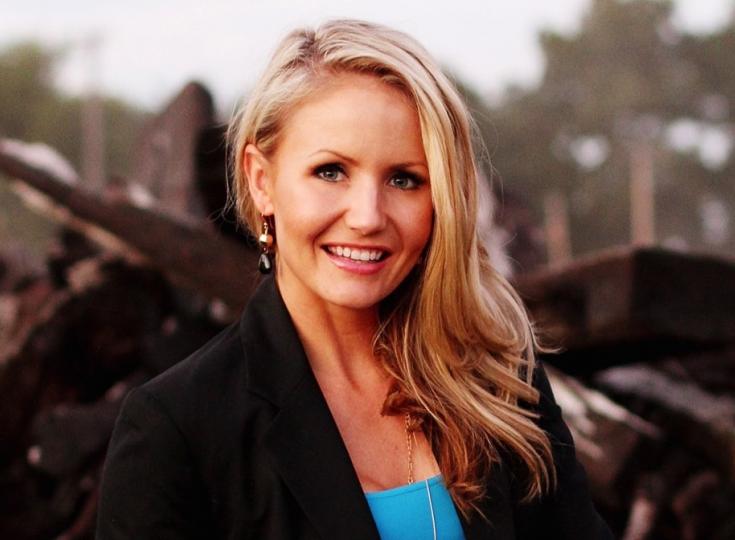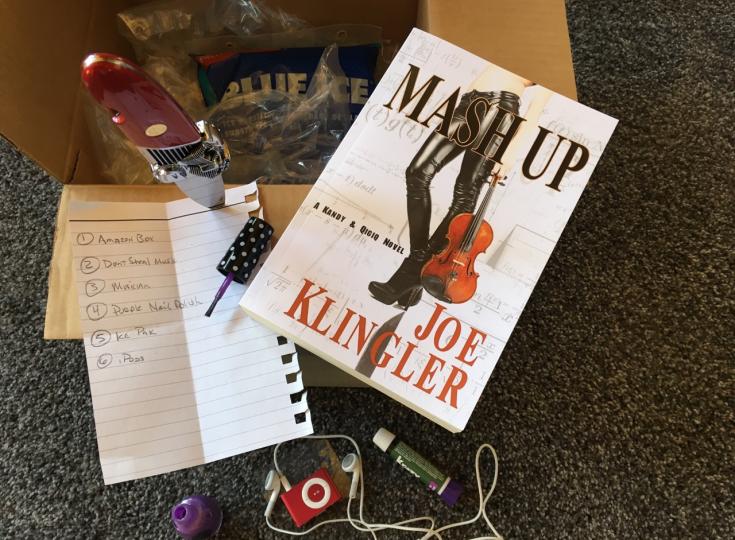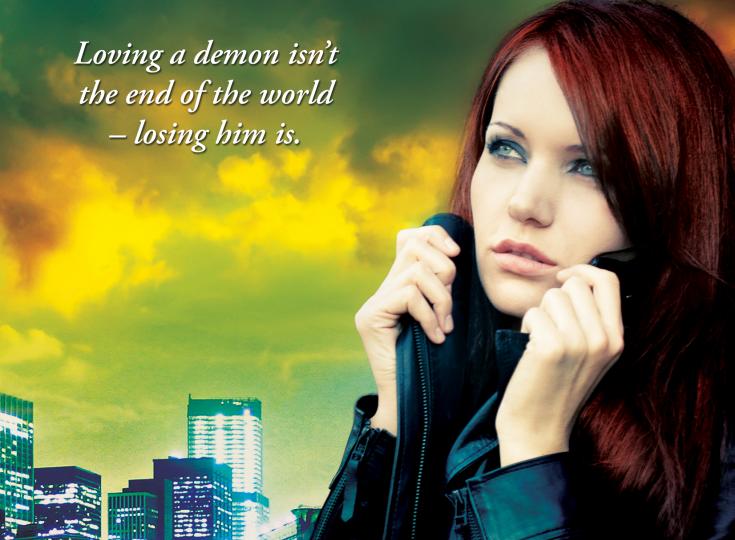Mary Pflum Peterson - Family Secrets, Mothers and Daughters
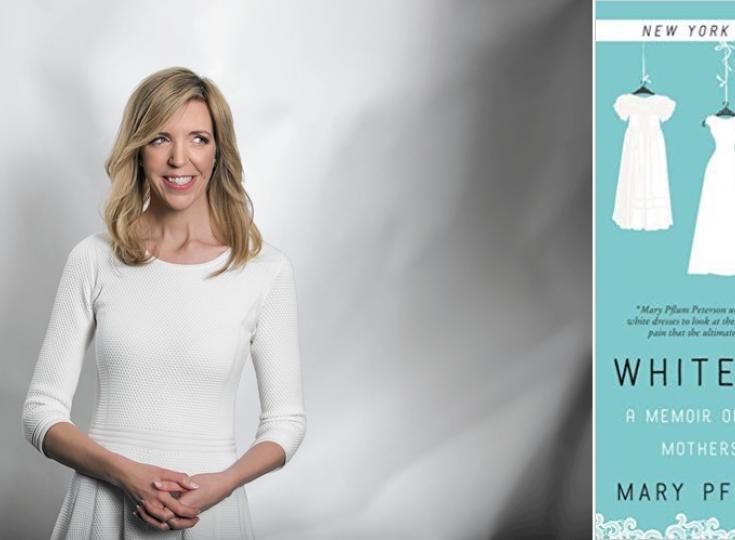
As a television journalist, Mary Pflum Peterson has seen it all. She has covered everything from Hurricane Katrina to royal weddings to war in Afghanistan, which is why she didn't think her family history was particularly interesting. Until she took a writing class and her instructor and classmates convinced her to write about her childhood and the story of her mother, a former nun who married a closeted gay man and was a compulsive hoarder. As our Author of the Day, Pflum Peterson gives us more insights into the quirks of her family history and talks about how White Dresses has brought mothers and daughters closer together.
Please give us a short introduction to what White Dresses is about
White Dresses is the story of three generations of women in a decidedly complicated - yet fiercely loving - Midwestern family. It is the story of mothers and daughters and the ties that bind. Each chapter begins with the story of a white dress that was worn on a significant day by a woman in the family. The dresses are the one constant in a topsy turvy family that faced a number of challenges: mental illness, nun abuse (my mother, Anne, a central figure in the book, was a Catholic nun for nearly a decade and was subjected to abuse within the convent), closeted husbands, and compulsive hoarding. Ultimately, White Dresses is the story of love and hope and faith - even in the face of adversity. The book has been compared to a Midwestern version of The Joy Luck Club and to an updated version of Terms of Endearment. I adore both comparisons - as Joy Luck Club and Terms of Endearment are among my favorite books and movies!

What inspired you to write this memoir now?
I had never intended to write White Dresses! I am a television producer who has seen a *lot* of memoirs come across my desk. And because of that background, I was under the impression that memoirs are written only by older people - who have lived longer lives - or by celebrities, looking to pen a tell-all. I knew my family had its quirks and I knew I loved to write, but I didn't think that others would find my story particularly interesting. That changed when I took a writing class at New York's West Side YMCA, where my children attend preschool. My instructor and classmates saw something in my in-class essays about my family that I didn't. They encouraged me to put the novel I was working on at the time to the side and to dig deep into my own life and to tell the story of those white dresses. And so I did. I'm so glad they pointed me in this direction. The book wrote itself. My mother had died a short time before I started writing the book - and the book not only flowed out of me - it also proved therapeutic, in that I was able to write about my late great mom and reflect upon all that she managed to give me in spite of tremendous obstacles.
The white dresses are very important to the story - why?
I come from a modest background. We didn't have much money to speak of. For us women, our heirlooms were white dresses. My family was a typical Catholic family - in that white dresses loomed large. (White is what is worn on significant Sacrament days - christenings and First Communions and weddings). So for my mother - the former nun - white meant a great deal to her on a faith-based level. But it also meant a great deal to her for other reasons. My mother believed that white was a symbol for infinite possibilities. She believed white in its various forms (including white dresses) was a means of hitting a sort of reset button in life.
Which part of the story did you find the most challenging to describe?
The toughest section of the book for me to write involved the chapter that explored my parents' marriage and the breakdown of my parents' marriage. I knew that my parents had a tough time of it (I was there for at least part of it). But I didn't realize just how tough it was until my father was good and honest enough to grant me a couple of exceptionally candid interviews. I took pains in writing the book to act as not only a daughter - but also as a journalist. I didn't want to write a memoir that was not grounded in truth. And in order to get to the truth, I interviewed dozens of family members and family friends, including my father. In the case of my interviews with my father, I was stunned to learn just how desperate both of my parents were at different times throughout the marriage. My father - who was gay but didn't tell my mother about his homosexual leanings at the time in which they married - tried to commit suicide several times before finally coming out of the closet. And he subjected my mother to lots of emotional abuse and bouts of humiliation prior to coming out. My mother forgave my father and they remained the best of friends even after their divorce - but hearing about the details of their marriage (even about their sex life) - that was hard for me to write. It made me weep for my mother and wish that someone could have been there for her. The trouble was - back in the 1970s when all of this was happening - many people honestly believed that nobody was gay. And so my poor mother had to suffer a great deal on her own, as society just wasn't open minded enough to open their hearts and minds and to give her the hugs and support and acceptance she needed.

The relationship between Mary and Anne is complicated, but you managed well to describe its intricacies. How did you pull this off?
That's an easy question: I was able to write about this relationship because I *lived* this relationship. I love my mother and consider her the greatest mother to have ever lived. But that doesn't mean that I think for a moment that she is or was perfect. My mother was complicated. Very complicated. She endured unspeakable loss throughout a complicated and amazing life that rendered her one part Super Woman and one part deeply wounded. And that's what made her so special. I wrote about the relationship as it is - as it is with so many mothers and daughters - and that is complicated. We loved each other fiercely. But we also locked horns. And when my mother's chronic depression developed into something more - compulsive hoarding - we locked horns even more, as I worked like mad to rescue her from the deep dark hole that is hoarding.
What is your secret to making readers relate to your characters?
I think the key for any writer is to write authentically - to write from the heart - to write about things as they happened. I believe when that happens, there is relatability. It doesn't matter that many of my readers have not endured abuse in a convent or married a closeted gay man or had a mother who is a compulsive hoarder. What they have experienced is love and loss. And when you write from the heart about those universal themes - when you write about your struggles and lay bear how things 'went down' - people relate because the most universal thing that all of us humans share is struggle and the pursuit of love. The more honest we are about our imperfections and struggles, the more people relate.
Hoarding and the psychology behind it is an issue you deal with in the book. Why did you find this topic important to explore?
Hoarding was a huge part of my childhood. When I was in elementary school, my mother's chronic depression started to spin out of control and keeping house was too much. By the time I was 11, our house was difficult to walk through and was illed with grocery bags teeming with unopened mail and newspapers. By the time I was a teenager, the house was a veritable disaster. No appliances worked. Instead of disposing of the appliances or replacing them, my mother left them - turning the home into a bit of a Used Appliance Museum. At the time in which she was descending into hoarding, there was no word for hoarding. In the 1980s, there were no reality programs about hoarding and it wasn't a topic that was talked about or understood. That made the entire situation very difficult. I wanted to write about it because it happened to me - and because I wanted others out there to know that have loved ones who are hoarders know that they are not alone. I believe the programs about hoarding have done a grave disservice to hoarders and to family members of hoarders in that they have missed the point of hoarding - that it is not something to gawk at and not something that should be making others feel good about themselves and their clean house. It is the manifestation of a mental illness and it is something that, like any illness, needs to be studied and treated
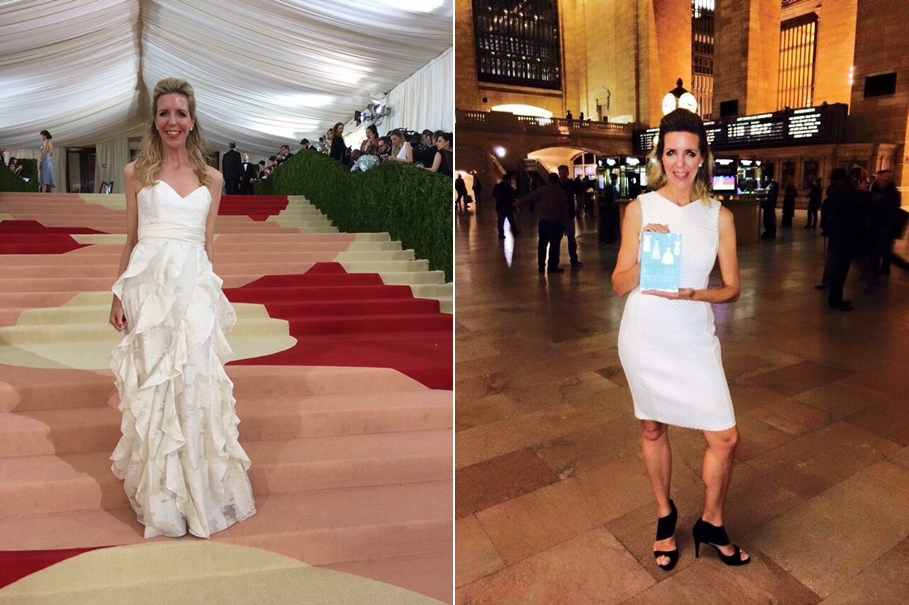
Besides writing, what other secret skills do you have?
My "skill" by day is that I am a television journalist. I have covered everything from Hurricane Katrina to royal weddings to war in Afghanistan. And because I work in morning TV, I have done my fair share of crazy live stunts and segments that can and will go viral. I've overseen live weddings in which the bride didn't even know the groom was going to propose until 8 am - and I helped her get married in an elaborate gown, replete with flowers and a full wedding party and waiting cake, by 9 am. I've also overseen loads of live makeovers and ugly holiday sweater 'contests.' The beautiful thing about morning TV is that every day is a new adventure filled with new challenges.
Did you find it hard to share such intimate details about your life with the world?
Laying bear the details of my life was difficult for only a millisecond. It helped that I had the love and support of a wonderful husband - who is the love of my life. He really encouraged me to write my story. He believed it was a story that should be shared. I should note that writing and publishing a book that delves into so many personal details of my life and my family's life has been a wonderful blessing. Prior to writing the book, my conversations with so many friends and acquaintances and colleagues did not go very deep. After the book came out, so many people wanted to talk to me at work, at parties, at school drop-offs - to *really* talk. They felt like they could talk to me about things that went beyond the weather because I had talked about so much in the book. I learned that honesty and authenticity are not only what people want in the 21st century - they're what people *need.* In this age of cell phones and texting, we've lost an ability to connect on the most human of levels. I think my book, if nothing else, has enabled me to connect with people about the nuances of a complicated family - and about the beautiful nature of a mother/daughter bond.
Why would you recommend that mothers and daughters read this book?
I have been told by lots of mothers and daughters who have read White Dresses that it's a book that brings mothers and daughters together. The best mother/ daughter relationships are, at the end of the day, complicated. They are filled with love -and they are filled with complexities. White Dresses goes into both topics - and ultimately is the story of how nothing, not even death, stands between a mother/daughter bond. The love continues even after death. I have been told by mothers and daughters who have read this book that they have seen themselves in the pages - and that they have found the story inspiring. I have also been told that the book makes mothers sit down and tell them their daughters more about their lives - including the lives they lived that unfolded before their daughters were born. Mother's Day is coming up - and I believe White Dresses the perfect Mother's Day gift from a mother to a daughter or from a daughter to a mother!

Do you have any interesting writing habits? What does an average writing day look like for you?
Many people are surprised to know that I don't have a set time of day to write - and that often my period of writing consists of five minutes in the back of a cab, in which I'm furiously tapping away at my phone. Much of White Dresses was written on a phone. I learned as I was writing a book that - owing to a very demanding job and owing to the fact that I have four small children - I wasn't going to be one of those writers who could sit down for an hour or two or there every day at some beautiful computer that's perched atop some beautiful desk in some quiet study. No - my life is too busy. I found that I just had to take the time to write when I could and to write with what I had. So that meant that much of the book was composed on a phone while I was standing outside a classroom door, waiting to pick my kids up from preschool or while I was in the waiting room at a doctor's appointment. I always tell people that if the only thing stopping them from writing a book is time - they need to find the time and pick up a phone!
What are you working on right now?
I am working on two more books right now - and can't wait to share them with readers! I've also penned a number of essays for the Washington Post and Huffington Post in the past year.
Where can our readers discover more of your work or interact with you?
Readers can learn about me through my website at http://www.marypflumpeterson.com They can additionally follow me on my Mary Pflum Peterson Facebook page. I post photos of what I'm up to (and photos, too, of my current family - and old photos from people they'll know from my book) to that Facebook page. I also read each and every message and note and love returning those messages.

